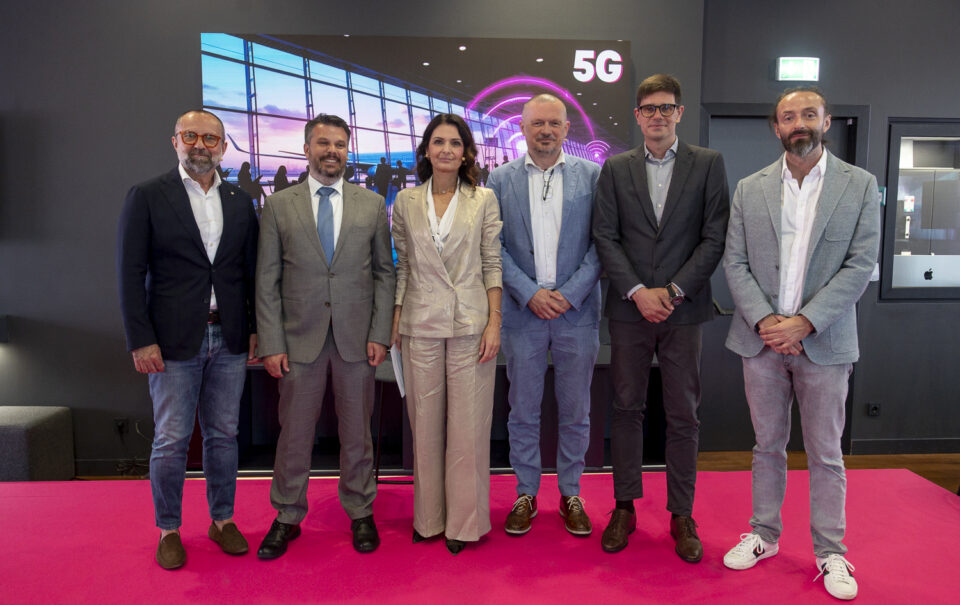The ‘NextGen 5G Airports’ project—developed in collaboration between Markoja, Hrvatski Telekom, the airports of Zagreb, Zadar, and Pula, and the Faculty of Transport and Traffic Sciences—introduces private 5G networks at Croatian airports to boost efficiency, enhance security, and improve passenger experience. The total value of the envisaged investment is €5.6 million, covering all three airports.
A key advantage of private 5G networks is full control over infrastructure—from planning and deployment to daily management and upgrades. This enables faster digitalization, higher security, reliability, and customization for each airline, operator, or passenger. Considering the high passenger volumes (over 4.3 million at Zagreb Airport, half a million at Pula, and a record 1.5 million at Zadar last year), private 5G implementation can optimize multiple airport operations.
Zagreb Airport (with 14 km of perimeter fencing, 188,684.95 m² of runway, and a complex lighting/navigation system) will deploy drones with UHD cameras and AI‑based analytics. This will accelerate inspection processes, allow real‑time anomaly detection, improve data accuracy, and support decision recommendations.
Pula Airport, with lower traffic (8,200 operations in 2024), a single 2,946 m runway, and 10,488 m of security fencing, will install 50 UHD cameras and radar/infrared sensors along the perimeter. Connected to AI software, they’ll detect damage, human or animal incursions, and deliver real‑time alerts and recommended responses.
Zadar Airport, with 7,879 operations in 2024, two runways (2,000 m and 2,500 m) and 7.5 km of fencing, will deploy industrial tablets running AI software for runway and fence inspection. Staff will no longer rely on verbal or radio reports—instead, data will be transmitted automatically for analysis and decision-making.

During the panel discussion “Implementing Private 5G Networks at Croatian Airports,” moderated by Marijana Bačić (Member of HT’s Executive Board for Business Customers and Combis Director), participants included Matija Bračić (Faculty of Transport and Traffic Sciences), Miran Gosta (Director at HAKOM), Boris Markoja (CEO and Board Member of Markoja), and Marin Tica (IT Director at Zagreb Airport). They emphasized how private 5G networks enable integrated voice, data, and video exchange among ground services, technical teams, and operations centers—unlike older systems offering only voice and limited data. Private 5G consolidates multiple communication platforms into one, reducing device requirements and simplifying network management.
“Our strategic direction is the development of flexible private 5G solutions that enable airports to digitalize key processes—from workforce scheduling optimization to predictive maintenance. Investment in private 5G networks allows Croatian airports to transform and be ready for future challenges and opportunities, while delivering a top-tier experience to all users and ensuring sustainable growth and competitiveness for Croatia’s economy,” highlighted Marijana Bačić.
Implementing such innovations in a highly regulated environment like airports requires detailed planning and close cooperation with relevant authorities, the panelists noted. The key drivers of air-transport modernization are private 5G networks, cloud, AI, analytics, applications, and connectivity—forming the ecosystem’s core.
Private 5G networks integrate exceptionally well with AI and machine learning, enabling real-time data transfer between aircraft and ground maintenance teams. Coupled with augmented/virtual reality and AI, airlines can predict potential failures and execute faster, more efficient repairs—reducing downtime, preventing delays, saving significant costs, and enhancing customer satisfaction.
By enabling real‑time data exchange between aircraft, air‑traffic control, and ground teams, private 5G networks also boost flight safety. With 8K surveillance cameras and drones, continuous and non‑intrusive monitoring of passenger movements becomes possible. Improved connectivity delivers up‑to‑date weather info to pilots, enabling better decisions and avoidance of turbulent conditions.
Informing passengers and maintaining flight schedules are critical. Digital check‑in and boarding can reduce overall security‑check times, while sensors and robotic baggage‑handling systems reduce lost bags. Autonomous ground vehicles support smoother traffic flow and more efficient luggage handling.
“Private 5G SA networks are redefining how we think about infrastructure—they’re no longer merely a connectivity backbone, but the foundation for digitalization and automation of complex systems such as seaports and airports. At Markoja, we invest knowledge and resources into 5G solutions that integrate advanced technologies—AI, edge computing, and IoT—to build secure, scalable, and highly efficient operating environments. Our goal is clear: to make infrastructure smart, adaptive, and future‑ready,” stated Boris Markoja.
